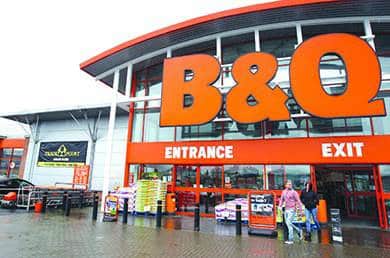TUNBRIDGE WELLS will achieve ‘financial independence’ one year ahead of schedule despite the ‘fluctuating and disappointing legacy’ of central government interference.
Introducing the 2017/18 budget to the borough council’s Cabinet last week, Councillor Paul Barrington King, Portfolio Holder for Finance and Governance, said the authority has faced ‘growing pressures’ in recent years that are ‘accelerating’.
He added ‘the journey’ undertaken in order to try and balance the budget has not been without ‘some extremely nasty surprises’, notably the impact of refunding businesses that have appealed their rates.
Cllr Barrington-King continued: “We have had the fluctuating and often disappointing legacy of the incentives to councils with business rates and the new homes cash bonus. All of this has left us in an increasingly worse position.”
In total, a £1.8million shortfall arose in the council’s net revenue budget due to falling government support and rising costs.
A significant part of this reduction comes from a £629,000 cut in its Revenue Support Grant, leaving just £200,000 available in the new financial year.
However, while this has been factored into spending for a long time, officers at Cabinet spoke of being blindsided by the government’s decision to suddenly change the way it rewards house building through the New Homes Bonus Strategy.
Originally, it was meant as a means to incentivise house building, but last year the government started to divert money from the scheme into social care funding.
Exacerbating the negative impact on the budgets of local authorities was the decision to retrospectively apply changes to the complex calculations used to reward house building, meaning previously assumed income going forward was reduced. This meant a further loss of £415,000 in net revenue for the council for 2017/18.
Other pressures came from higher spending commitments, such as the increased cost of refuse collection, rising demands for temporary accommodation and the revaluation of business rates, and other expenses.
One of the ‘extremely nasty surprises’ faced by the council last year was the prospect of having to refund numerous businesses which had sought a revaluation of their rates. In the most recent budget, the council has indicated it will pay £91,000 in claims.
The Times first reported the issue of business rates in September, when B&Q successfully lodged a claim for a refund with the Valuation Office Agency to the dismay of council officers, who described it at the time as ‘grossly unfair’.
In order to plug the resulting £1.8million black hole, the council is set to increase its share of council tax – on a Band D property this would be the equivalent of £4.98 – netting an additional £213,000 of income.
An additional £400,000 will be made through efficiency savings, while the council expects to get a further £474,000 from increased parking charges.
Other revenue-raising or saving measures include a reduction in the cost of pensions, the amalgamation of debt recovery services with neighbouring authorities, and a new banking contract.
The council has not had to rely on tapping into reserves to achieve a balanced budget. In addition, it is using the £200,000 Revenue Support Grant from the government – the final tranche before it is cut completely – to replenish reserves, which the council states will ensure ‘financial self-sufficiency’.
Concluding, Cllr Barrington-King added: “It is to the credit of the officers who have dealt with this, and I believe they are beyond peer in the UK. Once again, they have come forward and pulled a rabbit out of the hat when delivering a balanced budget. On top of that, we are 12 months ahead of the threshold towards financial independence.”
Full Council is set to vote on the budget next Wednesday [February 22].
Budget background:
Overall, the borough council will have a gross expenditure of £65.9million in the 2017/18 financial year, of which just over half (£35.2m) is spent on the provision of benefits and effectively paid for directly by the government.
The remainder of the expenditure is funded by income raised from a mixture of sources, notably: Council tax, fees and charges for council services, and government grants – the latter of which has been greatly reduced since 2010.
Housing Benefits & CT Support £35.2m
Employees £13.7m
Premises £5.8m
Supplies & Services £4.5m
External Contracts £4.5m
Shared Services £1.6m
Transfer to Reserves £0.4
Transport £0.1m
Benefit Subsidy £35.2m
Income, Fees & Charges £16.8m
Council Tax £7.5m
Government Funding £3.6m
New Homes Bonus £1.4m
RVP Rent £0.8m
Net Interest £0.5m








